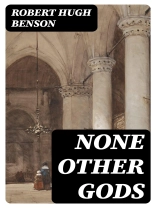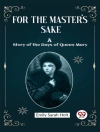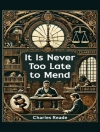In ‘None Other Gods, ‘ Robert Hugh Benson crafts a compelling narrative that weaves together themes of faith, temptation, and the multifaceted nature of personal belief. Set against the backdrop of the early 20th century, the story delves into the psychological struggles of its characters as they grapple with the contradictions of modernity and spiritual truths. Benson’s literary style combines rich, evocative prose with a deep philosophical inquiry, reflecting the moral dilemmas of a world increasingly skeptical of traditional dogma, thereby situating the novel within the context of a post-Victorian literary landscape that is ripe for questioning established norms. Benson, a convert to Catholicism and a member of the English clergy, infuses his narrative with insights drawn from his own spiritual journey and the cultural upheaval of his time. His background and clear engagement with theological discourse lend authenticity and depth to the characters’ conflicts. Benson was acutely aware of the challenges to faith in the face of rising secularism, and his experiences undoubtedly shaped the nuanced portrayals and poignant dilemmas presented in this novel. ‘None Other Gods’ is recommended for readers seeking a profound exploration of faith amidst existential crisis. Its rich character development and thoughtful reflections on spirituality challenge readers to confront their own beliefs in a complex world. This work invites both literary and theological examination, making it essential for scholars, students, and anyone interested in the intersection of faith and modernity.
เกี่ยวกับผู้แต่ง
Robert Hugh Benson (1871–1914) was an English Roman Catholic priest and a prolific author of both fiction and non-fiction works. Son of the Archbishop of Canterbury, Benson converted to Catholicism in 1903, which was a controversial move at the time. His literary career encompassed various genres including historical novels, science fiction, supernatural fiction, and spiritual writings. ‘None Other Gods’, one of his lesser-known works, offers insight into the themes of faith and the enticement of material wealth, characteristic of Benson’s Catholic worldview. Benson’s notable contribution to the genre of dystopian fiction is evident in his novel ‘Lord of the World’ (1907), where he explored themes of spirituality and the future of Western civilization in a secularized world. His works often reflected his religious convictions and exhibited a profound understanding of human nature and spirituality. His style blends elements of natural dialogue with earnest narrative, providing a philosophical undercurrent to his storytelling. Benson’s influence extended to his contemporaries and later authors who grappled with the tensions between modernity and spirituality. Despite his early death at the age of 43, Benson’s prolific output left an indelible mark on early 20th-century literature, particularly in the realms of religious and speculative fiction.












